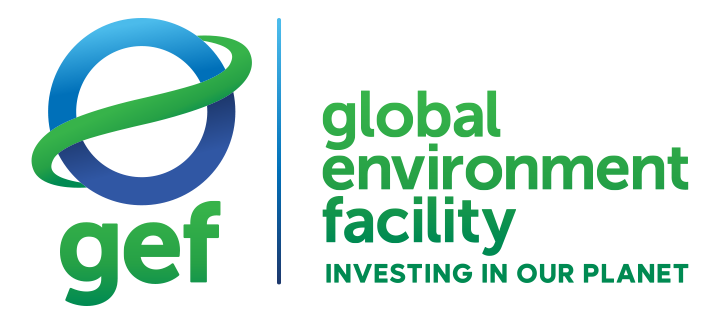Laying the foundation for resilient drylands: the Dryland Sustainable Landscapes Impact Program

29-30 January 2020. FAO hosted the first Dryland Sustainable Landscapes Agency Partner Meeting to discuss the design of the Global Platform for the Global Environment Facility (GEF) funded Dryland Sustainable Landscapes Impact Program (DSL) under GEF-7. The DSL Impact Program takes an innovative, transformational approach to tackling the challenges threatening the fragile ecosystems in the drylands that are home to over 2 billion people and supports over half of the world’s food production.
Opening the workshop, Ms. Maria Helena Semedo, FAO Deputy Director-General, Climate and Natural Resources, highlighted the significance of the program, “The Drylands Program is unique in many important ways. Prominent among these is that it represents a major investment of the GEF to move upstream to address the key drivers of environmental degradation, which ultimately undermines the sustainable development goals we are all working to achieve.”
The workshop sought to maximize country-ownership and commitment through identifying the kind of need-based support the global coordination project (GCP) can provide to the national projects in order to broaden and deepen the scale of delivery of the Impact Program. Among the participants were government representatives from 11 partnering countries, colleagues from FAO HQ and decentralised offices, representatives from the Global Environment Facility, United Nations Convention to Combat Desertification (UNCCD), World Bank, International Union for the Conservation of Nature (IUCN), UN Environment Programme (UNEP), and World Wildlife Fund (WWF).
 The two-day power agenda featured presentations from the 11 participating countries, as well as the GEF Secretariat, UNCCD, World Bank, IUCN, and WOCAT, that highlighted important actions to be taken and partnerships to be built for achieving the ambitions of the DSL Impact Program. The diverse group of over 80 participants also spent much time in working groups to identify opportunities for scalability of the Impact Program beyond the participating countries, ways to incorporate public and private sector engagement, enhance understanding of the agrosilvopastoral systems, and effective governance and decision-making, all key aspects for the success of the DSL Program.
The two-day power agenda featured presentations from the 11 participating countries, as well as the GEF Secretariat, UNCCD, World Bank, IUCN, and WOCAT, that highlighted important actions to be taken and partnerships to be built for achieving the ambitions of the DSL Impact Program. The diverse group of over 80 participants also spent much time in working groups to identify opportunities for scalability of the Impact Program beyond the participating countries, ways to incorporate public and private sector engagement, enhance understanding of the agrosilvopastoral systems, and effective governance and decision-making, all key aspects for the success of the DSL Program.
The workshop participants reflected positively on the meeting, with almost 85% of participants stating that their expectations were either fully met or exceeded in the post-workshop evaluation. “I am taking with me a very important key message that has been slowly emerging from the workshop: It is important to ensure the regional and global-level coordination of the project to improve on the Global Environmental Benefits in the Drylands.”, said Mr. Tanyaradzwa Mundoga from the Ministry of Environment, Tourism & Hospitality Industry, Zimbabwe.
A key aspect of the program is also to support countries in their efforts to achieve their national Land Degradation Neutrality (LDN) targets. Ms. Sandrine Jauffret from the UNCCD concluded that “It was very useful to see how LDN will be implemented on the ground to translate the commitment of the countries which define their LDN targets. We should bring forward the results from this Impact Program to the UNCCD constituency.”
 Appreciating the organization of the workshop, Mr. Ulrich Apel from the GEF Secretariat expressed his thanks “to FAO and to all participants for their active participation and for bringing in the realities from the ground. The workshop really exceeded my expectations.”
Appreciating the organization of the workshop, Mr. Ulrich Apel from the GEF Secretariat expressed his thanks “to FAO and to all participants for their active participation and for bringing in the realities from the ground. The workshop really exceeded my expectations.”
The active, interactive, and intensive two-days brought forward many opportunities and possible challenges that will be weaved into the design of the Global Program. Closing the workshop, Dr. Dennis Garrity, the UNCCD Goodwill Ambassador, left the group with a powerful message, “The important word here is IMPACT. Impact that is cost effective, impact that demonstrates results in large scale and that benefits many people. Impact that makes the biggest bang for the buck.”
Background
FAO is the lead agency for the GEF-funded DSL Impact Program, which aims to reduce and reverse degradation, desertification, and deforestation of dryland ecosystems in 11 countries in Africa and Asia. A funding of USD 104 million from the GEF and USD 800 million in co-financing, will go to the DSL Impact Program and will be implemented in partnership with the World Bank, IUCN, and WWF. Find out more here.See more photos from the workshop here.


